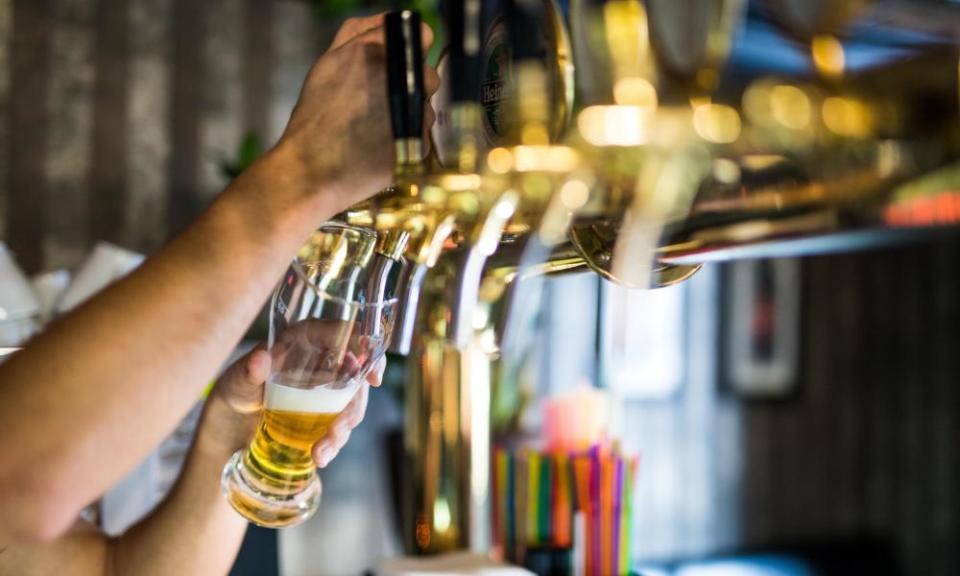Women boycott UK bars and clubs to demand action on drink-spiking

Young women are boycotting bars and clubs in 45 cities across the UK over the coming nights to demand action on drink-spiking, as one student who believes she was spiked via injection called for urgent communication between police and hospitals to ensure that physical evidence is gathered as quickly as possible.
Figures released on Wednesday reveal 56 incidents of spiking by injection were recorded by forces in England, Scotland, Wales and Northern Ireland in September and October, in addition to 198 confirmed reports of drink-spiking.
The revised data from the National Police Chiefs Council was issued amid anger about the prevalence of drink-spiking and widely shared social media testimony from individuals who believe they have been deliberately injected with spiking drugs.
Milly Seaford, a 21-year-old student at the University of Edinburgh and co-organiser of the Girls Night In boycott, said: “People are really fed up. It’s got to the point where everyone knows someone who has been spiked, or they have been spiked themselves. We just want to enjoy a night out and we know there’s stuff that can be done to prevent this.”
Groups of friends are planning film nights and house parties in place of nights out, to highlight the issue of women’s safety. Seaford said clubs had been “very receptive” to their demands. The boycott campaign is calling for more rigorous searches on entry, covers for drinks, training for bar staff and dedicated welfare officers to help those who are vulnerable to get home safely.
Sarah Buckell is a student at the University of Nottingham, where two men were arrested last week on suspicion of conspiring to administer poison in connection with a spate of reported spiking incidents involving needles in the city.
The 19-year-old believes she was spiked by injection on a night out with friends at a city centre club last month, during freshers’ week.
She describes becoming aware of her surroundings in hospital the following morning with a “black hole in my memory”, completely unaware of what had happened to her during the night. Medics told her that she showed signs of having been spiked and were “shocked”, Buckell said, when they noticed a small pinprick on her hand, which was bruised and throbbing.
“It’s really difficult to prove anything, especially when victims don’t remember anything. The memory loss is so extreme,” Buckell said, adding that one priority should be better communication between police and hospital staff. “Hospitals should be able to do independent drugs tests and call police on behalf of individuals.”
In her own case, medical staff were not able to run tests because the police were not yet involved in the case, and by the time they were able to take urine samples from her, she believes the spiking drugs may have left her system.
On Wednesday, Police Scotland confirmed it had received reports of 15 spiking incidents in Aberdeen linked to the night-time economy between 1 September and 21 October under questioning from the city council about the safety of the city’s significant student population.
With reported incidents in four other university cities in Scotland, a number of students’ unions have pledged action, with the University of Glasgow’s four student bodies promising tighter security and increased surveillance at their venues, and the University of St Andrews students’ association introducing measures including random bag searches, safety patrols and testing of unattended drinks at student venues in a zero-tolerance approach to spiking.
Seaford said that grassroots movement was also about effecting a cultural change in attitudes towards spiking and its victims: “This is going on everywhere so we need preventive action to stop is getting worse, but longer-term we need a culture change, for people to realise its not an acceptable thing to do, it is a violation, and to focus on the perpetrators rather than the victims.”

 Yahoo Finance
Yahoo Finance 